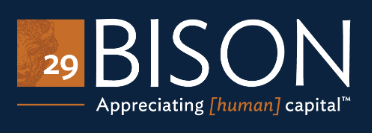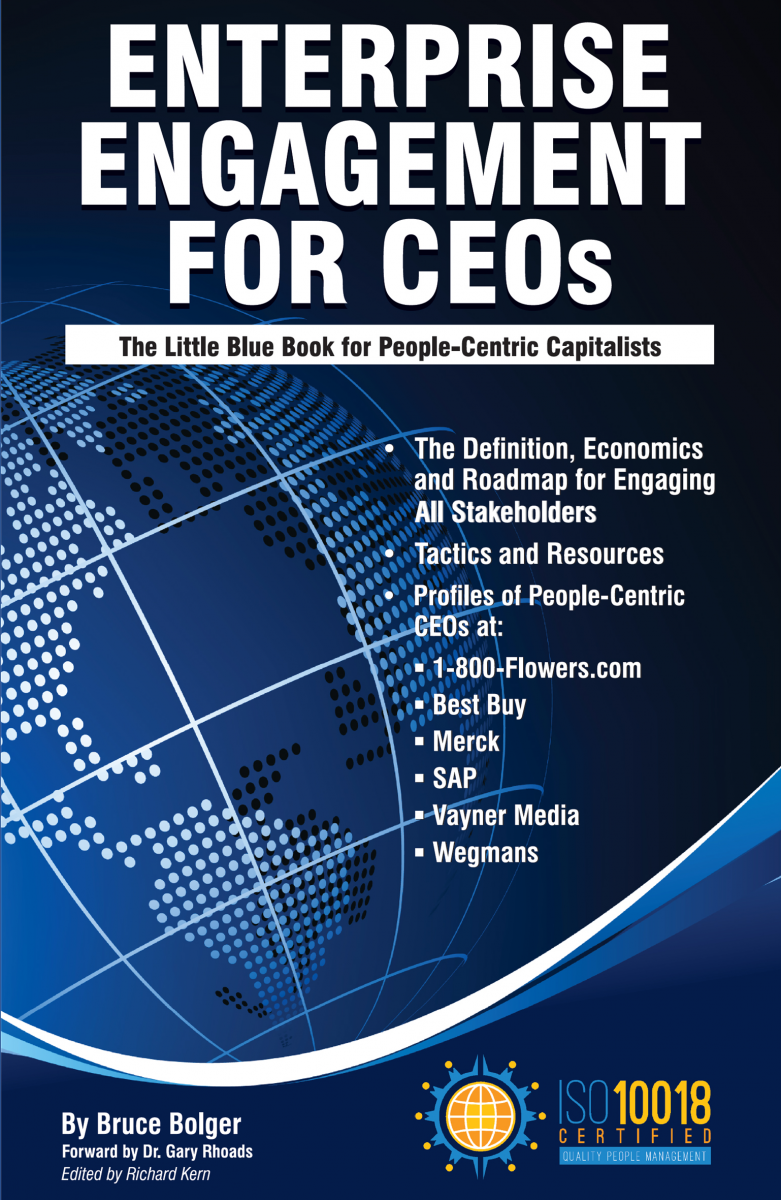Laura Queen rose through the ranks of human resources at multiple companies for more than 20 years. She made the decision to use her expertise to assist mid-cap private equity, venture capital and strategic buyers in mitigating risks by better evaluating the human capital aspect of potential acquisitions. Queen believes the new focus on human capital has only just begun; that the ramifications of Covid-19 will make it even more critical, and that the human resources profession can benefit greatly if it can rise to the occasion.
 29Bison
29Bison, of which Laura Queen is founder and CEO, is among the very few advisory firms focused on helping buyers of mid-size companies make better decisions through a systematic analysis of the human capital assets of targeted companies. She admits the concept of integrating human capital valuations into M&A (mergers and acquisitions) activity was a tough sell at first, but it has begun to get easier. “It’s a stronger case to make to organizations whose success depends on people, such as call centers, physician and health-care related practices, IT organizations, or others whose key assets include people, their expertise and relationships, and related intellectual property.”
Queen says the major obstacle to the understanding of risk mitigation through human capital analytics remains the lack of appreciation by many CEOs for the ability to strategically manage human capital and measure the impact of people on the bottom line. Based on more than 20 years of experience with leading organizations in multiple economic sectors, Queen says very few companies have a strategic approach to measuring human capital metrics or to applying those scorecards to organizational strategy and implementation tactics in a systematic way.
“Most companies do not have formal human capital measures, investing millions in employee or customer engagement tactics with little or no return-on-investment,” she asserts. One fundamental reason, she notes, is human capital is carried as an expense on the balance sheet, not an asset. “A company could decide to install 100 new toilets in a facility, carry it as an asset on its books, and depreciate the cost over time. If it decided to invest the same amount in a new training program to equip people for a new technology, it is considered an expense.”
She adds, “All investments in people get buried under the general category of good will on balance sheets and as a result have not received the focus they deserve.”
Covid-19 Will Put More Emphasis on Human Capital

Queen, like many others in the human capital space, believes the Covid-19 crisis will only draw more attention to the importance of people. “Every aspect of this pandemic is impacted by or has an impact on human beings. The need for people to change their ways, the loss of life, the effects of being stuck at home, has created an entirely new perspective. Parents of school age children now have a greater appreciation for our teachers; we have come to realize the essential role of caregivers, healthcare workers and so many others. In the long-term there will be changes for the better because of how this affects our view of the people who do the work around us and where true value is created.”
She elaborates. “For some CEOs and some investors, Covid-19 will be like a lightning bolt. Many will be reluctantly drawn to the fact that humans have tangible value that merits effective management and measurement. I do not believe there will be a total transformation. That said, the last bastion of opportunity for value improvement and return-on-human capital investment is the unexplored value of people to their businesses. If there is no means of calculating human capital metrics, organizations can’t know what to focus on.”
She points out, “Almost all organizations have gone through a performance improvement effort, implemented just-in-time logistics, (as well as recently learned the downside of that approach), and pushed or pulled just about every type of process lever. The levers they haven’t touched are the ones involving human capital. There is a move to focus on ESG (Environmental, Social, and Governance) concerns, diversity, pay equity, etc., but very few CEOs have addressed how they can specifically enhance the human capital capability of their enterprises. Only a small percentage of organizations understand the role of human capital in value creation. The greatest opportunity is likely to be in the middle market or in small businesses where CEOs can more closely feel the impact of their people.”
The Opportunity for HR
“The HR field has an opportunity to rise to the occasion,” Queen continues. “If HR seeks to have a serious influence, it has to go beyond the role of employee advocate to understand how organizations function and how better human capital management can impact business operations strategically and tactically, and how that impact can be measured. This means having a deep understanding of what in the business produces value and profits and what gets in the way of customer satisfaction, market penetration, research and development, or innovation. Today’s HR leaders must be deeply embedded in the business to demonstrate how human capital can be directly connected to the drivers of organizational success.”
HR executives, Queen says, should “Step up to see how human beings fit into the business model. How can specific HR metrics be connected to the financial measures of success, and what actions can be employed to connect key human capital measures to improved financial success?”
The Role of Human Capital in Mergers & Acquisitions
29Bison.com focuses on mid-size acquisitions and mergers by private equity firms, venture capital companies, and strategic purchasers. The company has also helped sellers address the human capital issues in their sale presentations. Queen says the company’s name is carefully chosen, combining the number 29 to represent the highly functional and versatile element copper on the periodic table, and the bison, for its ability to lead the herd. “Cupernicus, our copper bison, inspires us to learn from the wisdom of the herd, and in the process unearth the precious elements of success.”
Queen believes her company’s approach to risk mitigation through human capital evaluations will take hold as companies increasingly recognize effective management of people is the only sustainable way to increase value. “The old private equity model of slashing costs and squeezing profits out of companies is evolving. Investors are attracted to a more sustainable approach that creates value through people.”
Adding human capital analysis to the due diligence process, she says, helps organizations avoid costly mistakes related to potential risks or unnecessary costs. In one case, Queen explains, her company uncovered an organization’s most critical team was a small technical department that could have easily been overlooked. The company had not replaced any of its old machinery and was using equipment no longer sold or supported. This technical department was mission-critical because it had developed the unique expertise and fabrication devices necessary to create spare parts and keep the machinery functioning. In another case, her team uncovered a significant expense for mandatory compliance training requiring employees to leave the premises and drive 20 miles round trip. Addressing that issue alone resulted in significant cost savings and eliminated the risk of car accidents on the way to or from training.
Queen believes once companies have a better sense of where the pandemic and economy are headed, potentially within a month or two, merger and acquisition activity will increase as weaker players seek an exit or look to merge with a larger player. “There is a tremendous amount of private equity money on the sidelines that is likely to come out as valuations decline. After all the pandemic-related damage that has occurred in the areas of employees and customers, buyers would assume serious risks without a careful look at human capital.”
For More Information
Laura Queen
Master the Principles of Stakeholder Capitalism And Implementation Through Enterprise Engagement
Education, Certifications, and Information to Activate
Stakeholder Capitalism Available Nowhere Else
A complete learning, certification, and information program and a course syllabus for educators.
Training and Certification
Enterprise Engagement Alliance Education: Certified Engagement Practitioner; Advanced Engaged Practitioner, and Certified Engagement Solution Provider learning and certification programs on how to implement Stakeholder Capitalism principles at the tactical level.

Join the EEA to begin your certification process or see our other resources below.
THE ONLY BOOKS ON STAKEHOLDER CAPITALISM IMPLEMENTATION

Enterprise Engagement: The Roadmap 5th Edition
The first and most comprehensive book on Enterprise Engagement and the new ISO 9001 and ISO 10018 quality people management standards. Includes 36 chapters detailing how to better integrate and align engagement efforts across the enterprise. (312 pages, $36.)
OTHER RESOURCES TO ACTUALIZE STAKEHOLDER CAPITALISM
Communities: The Enterprise Engagement Alliance and Advocate and the Brand Media Coalition free resource centers offering access to the latest research, news, and case studies; discounts, promotions, referrals, and commissions, when appropriate to third-party solution providers from participating coalition solution provider members.
Enterprise Engagement Resources: EEXAdvisors.com provides the only curated online marketplace to access hundreds of solution providers in all areas of human capital management and enterprise engagement throughout the world.
Online Overview:
10-minute short course: click here for a 10-minute introduction to Enterprise Engagement and ISO standards from the Coggno.com learning platform.
Services:
• The Engagement Agency at EngagementAgency.net, offering: complete support services for employers, solution providers, and technology firms seeking to profit from formal engagement practices for themselves or their clients, including Brand and Capability audits for solution providers to make sure their products and services are up to date.
• C-Suite Advisory Service—Education of boards, investors, and C-suite executives on the economics, framework, and implementation processes of Enterprise Engagement.
• Speakers Bureau—Select the right speaker on any aspect of engagement for your next event.
• Mergers and Acquisitions. The Engagement Agency’s Mergers and Acquisition group is aware of multiple companies seeking to purchase firms in the engagement field. Contact Michael Mazer in confidence if your company is potentially for sale at 303-320-3777.
Enterprise Engagement Benchmark Tools: The Enterprise Engagement Alliance offers three tools to help organizations profit from Engagement. Click here to access the tools.
• ROI of Engagement Calculator. Use this tool to determine the potential return-on-investment of an engagement strategy.
• EE Benchmark Indicator. Confidentially benchmark your organization’s Enterprise Engagement practices against organizations and best practices.
• Compare Your Company’s Level of Engagement. Quickly compare your organization’s level of engagement to those of others based on the same criteria as the EEA’s Engaged Company Stock Index.
• Gauge Your Personal Level of Engagement. This survey, donated by Horsepower, enables individuals to gauge their own personal levels of engagement.
For more information, contact Bruce Bolger at Bolger@TheEEA.org, 914-591-7600, ext. 230.
 29Bison, of which Laura Queen is founder and CEO, is among the very few advisory firms focused on helping buyers of mid-size companies make better decisions through a systematic analysis of the human capital assets of targeted companies. She admits the concept of integrating human capital valuations into M&A (mergers and acquisitions) activity was a tough sell at first, but it has begun to get easier. “It’s a stronger case to make to organizations whose success depends on people, such as call centers, physician and health-care related practices, IT organizations, or others whose key assets include people, their expertise and relationships, and related intellectual property.”
29Bison, of which Laura Queen is founder and CEO, is among the very few advisory firms focused on helping buyers of mid-size companies make better decisions through a systematic analysis of the human capital assets of targeted companies. She admits the concept of integrating human capital valuations into M&A (mergers and acquisitions) activity was a tough sell at first, but it has begun to get easier. “It’s a stronger case to make to organizations whose success depends on people, such as call centers, physician and health-care related practices, IT organizations, or others whose key assets include people, their expertise and relationships, and related intellectual property.” Queen, like many others in the human capital space, believes the Covid-19 crisis will only draw more attention to the importance of people. “Every aspect of this pandemic is impacted by or has an impact on human beings. The need for people to change their ways, the loss of life, the effects of being stuck at home, has created an entirely new perspective. Parents of school age children now have a greater appreciation for our teachers; we have come to realize the essential role of caregivers, healthcare workers and so many others. In the long-term there will be changes for the better because of how this affects our view of the people who do the work around us and where true value is created.”
Queen, like many others in the human capital space, believes the Covid-19 crisis will only draw more attention to the importance of people. “Every aspect of this pandemic is impacted by or has an impact on human beings. The need for people to change their ways, the loss of life, the effects of being stuck at home, has created an entirely new perspective. Parents of school age children now have a greater appreciation for our teachers; we have come to realize the essential role of caregivers, healthcare workers and so many others. In the long-term there will be changes for the better because of how this affects our view of the people who do the work around us and where true value is created.”















